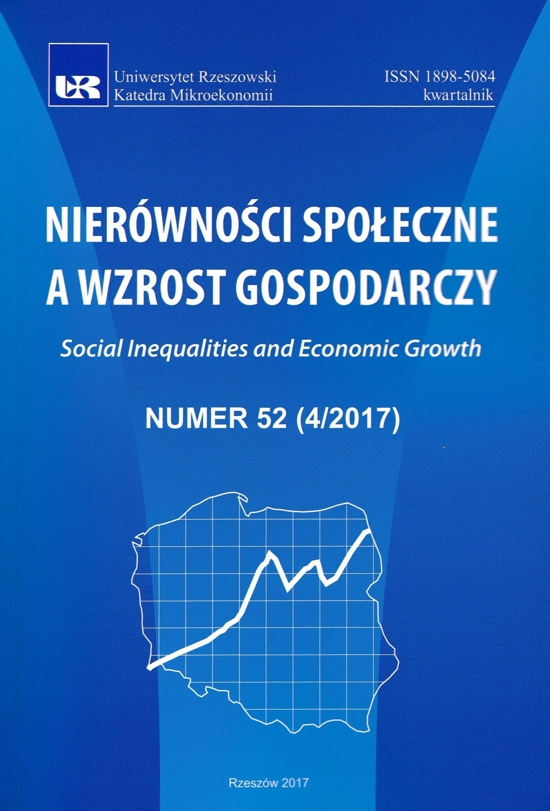The assessment conception of employees’ individual creativity spillover effect in enterprises with different levels of know-how
DOI:
https://doi.org/10.15584/nsawg.2017.4.25Keywords:
economic development, creativity, creativity spillover effectAbstract
Creative human capital is an important determinant of economic development nowadays. The creativity phenomenon is the subject of investigations of many scientific disciplines, such as psychology, pedagogics, sociology, economics of creativity, management sciences, philosophy, neurobiology, history and even ethics. In terms of creativity economics a particularly interesting issues are creativity spillovers or creative spillovers – the effects of employees’ creativity spread which can positively influence the development processes of economic structures and contribute to the growth of enterprises functioning efficiency. Based on in-depth study of literature an interesting scientific question can be asked – is it possible to scientifically observe and measure employees’ individual creativity spillover effect in enterprises? The paper takes the form of a scientific statement, as well as a technical note. Its aim is a short description of the research plan, which the author intends to realize in order to answer the above question. Article discusses the main and detailed scientific hypothesis, research objectives, selected methods as well as the research methodology. It also presents the procedure of building an original research tool named The Individual Creativity Spillover Effect Questionnaire (ICSEQ). The current working version of ICSEQ contains 20 statements. The 5-point scale with a neutral midpoint is used to assess spillovers. Respondents are asked to mark their opinions on each statement. Additionally, ICSEQ contains two extra questions (one open and one closed).Downloads
Download data is not yet available.
Downloads
Published
2020-11-13
How to Cite
Augustyn, K. (2020). The assessment conception of employees’ individual creativity spillover effect in enterprises with different levels of know-how. Social Inequalities and Economic Growth, 4(52), 362–371. https://doi.org/10.15584/nsawg.2017.4.25
Issue
Section
Articles
License
Copyright (c) 2017 University of Rzeszow

This work is licensed under a Creative Commons Attribution-ShareAlike 4.0 International License.


